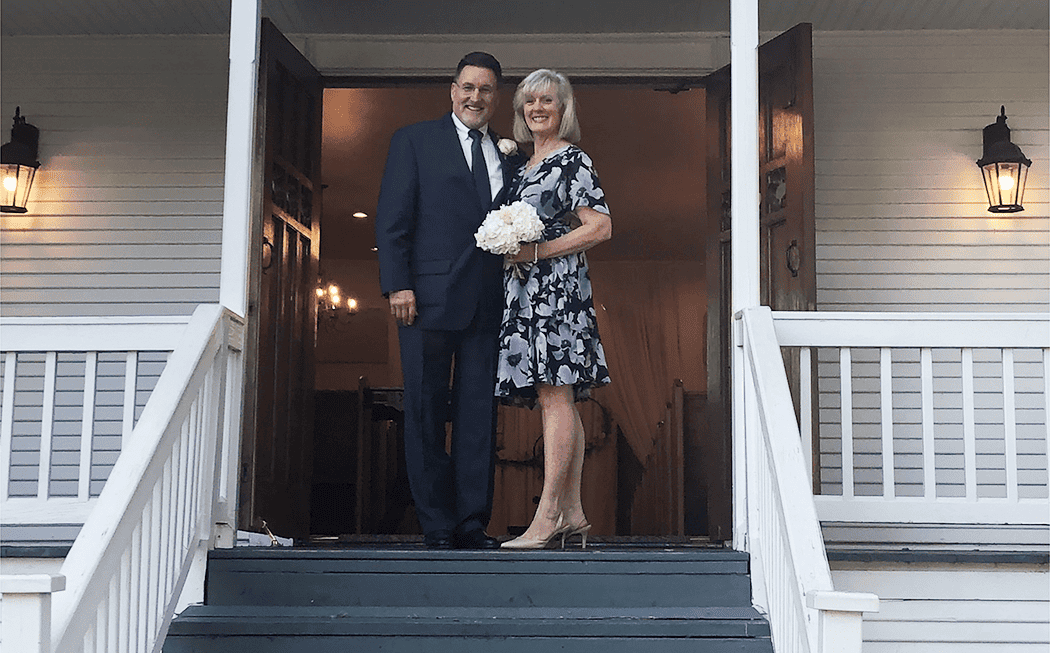A young boy named Mike owns a BB gun. He’s not allowed to keep it loaded—he’s only 8, after all—but today’s events are making him reconsider this particular policy. His parents are screaming at each other, and he’s scared.
The boy loads his gun, just in case he has to protect his mother.
Of course his parents find out, and Mike’s father insists he would never hurt Mom. Youthful optimism hopes things will improve, but the wallpaper spattered with spaghetti attests to yet another argument. Eventually, Mike learns that his parents are divorcing.
Mike has no way of knowing what his parents are teaching him by not teaching him anything about rebuilding their family. He never learns to compromise, to consider others’ feelings, to share, to be vulnerable. By age 9, what Mike has learned is to internalize every concern, to hold in every emotion—to handle them by himself and within himself.
“I learned early on how to build walls,” he says, “to protect me and to isolate me. I either dealt with problems on my own or buried them. Most got buried.”
Mike’s good friend is an older neighbor girl. The two live next door to each other in Dallas, attend the same schools, grow up in the same church. “Being friends with me meant you only saw what I was willing to show you, and that wasn’t much.”
He keeps building walls, and by the time he’s an adult, Mike is living behind a fortress. No one is getting in, not his family.
Building barriers
A girl named Julie sits in church. She and her family attend every Sunday, morning and night. Wednesday evenings, too. From an early age, the girl knows she wants a job as opposed to a career, so she can devote more time to family.
Julie likes spending time with friends, kids like the boy next door. She’s a couple of years older than Mike, but that doesn’t really matter once they are in college. They marry in 1983, and Julie discovers that her relationship with Mike is nothing like her parents’ marriage.
“My parents were very selfless, so that is what I learned by watching them,” Julie says. “Mike’s parents were very selfish, so that is what he grew up absorbing. He brought isolation into our marriage.”
Mike has no idea what a healthy relationship looks like, no clue about genuine intimacy, not a single notion about resolving conflict and absolutely no one to model it for him. Instead, Mike shares with Julie the skills he’s developed: Butting heads. Acting distant. Leading separate lives. Most of all, he shows her how to erect emotional barriers of her own.“
I learned to build walls to protect me from hurt and unmet expectations,” Julie says. “Unknowingly, I mentally compared him to how my dad led our family, and Mike had absolutely no role model for any of his growing up, so he failed miserably.”
Julie can tell something is wrong, yet has no idea how to fix it. All she knows is that she grew up in a happy home, and this one definitely isn’t. Unsure of what to do, she responds to Mike’s behavior with the silent treatment. Another wall between her and Mike.
A surprise announcement
For 25 years they coexist. Their union has become a chasm, their happiness a charade. They even hide the truth from their two children. In December 2007, Mike makes a surprise announcement.
“My dad said he was moving to Virginia, and my mom was not invited,” says their daughter, Kelly. “I think it was a shock to everyone.”
Kelly is in high school, her older brother in college, the whole family in free fall. Julie must navigate the chaos in Dallas, alone.
After her husband leaves, she takes a full-time job and sells their house. She also starts listening to Christian radio, in particular a program called Focus on the Family. As the years pass, she pays special attention to the shows in which couples discuss the impact their family environment had on their marriage. It has never occurred to her before, but when Julie considers everything that happened in their dysfunctional, loveless relationship, it all makes perfect sense.
In the meantime, Julie says, God has gotten Mike’s attention. He breaks up with the woman he’s been seeing, and in 2015 he writes a nearly 2,000-word apology:
Julie, I want to tell you how very sorry I am for what I did to you, for how much I hurt you. You never deserved anything like that. I know you’re probably wondering, Where is this coming from? Well, for the last many, many months, God has been working in my life. . . .
Rebuilding their family
Mike and Julie start talking again. Around 2016, one of them mentions something they’d heard on the radio. The other one says, “I heard that, too.”
“We came to realize that we were both listening to the same Focus on the Family broadcasts every morning, five days a week,” Julie says, “and had been doing so for over a year.”
In 2017 Mike invites Julie to visit Virginia, and they spend the time walking and talking. Mike finally reveals everything about his past—the good, the bad and the tragically sad.
“After a few days, he said he felt the Lord was leading him to remarry,” Julie says. “I asked, ‘Oh, who do you think you will marry?’ ”
“You.”
A Healthy Relationship
Julie is stunned. She wants to remain friendly for the sake of their children; remarrying Mike was never a consideration. Still, Julie can’t deny she’s intrigued by the idea of tearing down past walls and rebuilding their family.
In 2018 they agree to meet up again at a Disney resort. For five days they talk and talk and talk some more. In this fairytale setting, Julie realizes she’s falling in love again—not with the old Mike, but with this changed man and his renewed heart.
Mike moves back to Texas in 2019, and together they spend the next five months in a re-engagement class. Eleven years after they divorced, Mike and Julie remarry.
“Never in my wildest dreams,” says their daughter, Kelly, “did I think my family would be whole again.”
Julie says their relationship today is what the Lord originally intended for their marriage. They regularly attempt to “out-serve” each other, and they use the inevitable challenges as opportunities to love unconditionally. Mike and Julie also practice what they’ve learned via the radio, knowing from experience how God can use those stories to transform broken people—people just like them.



















